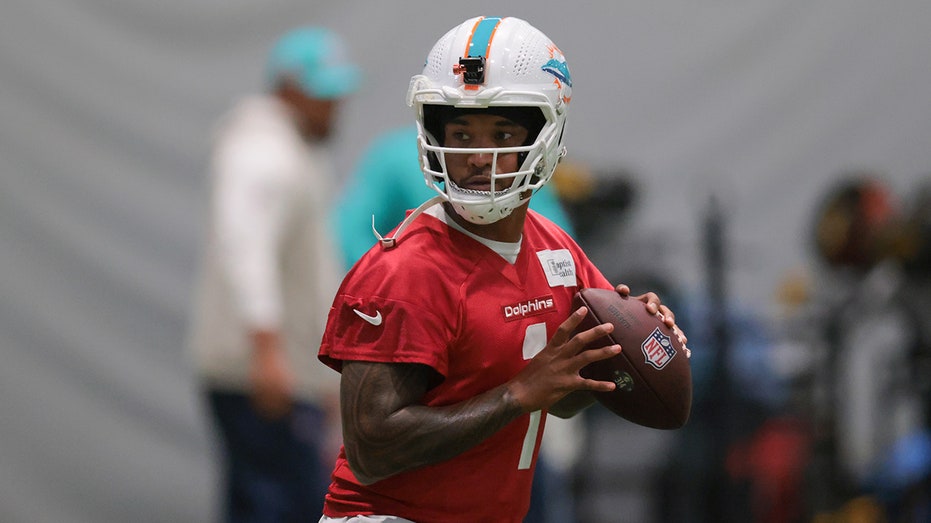USA Fencing Defends Trans Inclusion Policies Amid Backlash Over Stephanie Turner’s Protest

Sarah Johnson
April 4, 2025
Brief
USA Fencing faces controversy after Stephanie Turner protests competing against a transgender opponent, igniting debates over trans-inclusion policies, fairness in women's sports, and athlete rights.
USA Fencing has sparked a heated debate after women's fencer Stephanie Turner knelt in protest against competing with a transgender opponent, a move that quickly went viral. The incident has drawn commentary from major voices, including J.K. Rowling and tennis legend Martina Navratilova, alongside a wave of women's sports rights activists rallying online.
The governing body addressed the uproar with a statement on Thursday, doubling down on its trans-inclusion policies. "USA Fencing remains committed to fostering an inclusive, respectful community for everyone in our sport," the statement read. "We believe in the principle of creating safe communities where all athletes and community members have a place." The organization emphasized its zero-tolerance stance on hate speech and called for respectful dialogue as policies continue to evolve.
USA Fencing's transgender policy, introduced in 2023, allows transgender athletes to compete in the women's category after undergoing one calendar year of testosterone suppression treatment. Proof of compliant hormone therapy is required before competition. Additionally, the organization favors states with LGBTQ-inclusive laws when selecting host cities for national tournaments—a decision that has stirred further controversy.
Turner’s protest was aimed at Redmond Sullivan, a transgender athlete who transitioned from competing in men’s events to the women’s category in mid-2023. Sullivan has since achieved podium finishes, including two gold medals at qualifying events. Turner expressed concerns about the increasing presence of transgender athletes in women’s and girls’ events, citing observations across various age groups, including Y-14, the youngest competitive category.
Interestingly, USA Fencing clarified that Turner’s disqualification was not due to her protest but rather because she refused to compete, which violates International Fencing Federation rules. "A fencer is not permitted to refuse to fence another properly entered competitor for any reason," said a spokesperson. "Such a refusal results in disqualification under FIE rules to maintain fair competition and preserve the sport’s integrity."
Despite the controversy, USA Fencing remains firm in its stance, encouraging respectful discussion and evidence-based dialogue. Yet, with calls from organizations like the Fair Fencing Organization to reassess the transgender policy, the debate over inclusion and fairness in sports seems far from settled.
Topics
Editor's Comments
This story is a battlefield of principles—human rights versus fairness in competition—and USA Fencing is right in the crosshairs. While their effort to create inclusive policies is commendable, the sheer complexity of balancing inclusivity with fairness is undeniable. Turner’s protest has ignited a conversation that stretches far beyond fencing, touching the broader societal debate over trans rights in sports. One can't help but wonder if there's a middle ground here—or if this controversy is destined to keep escalating.
Like this article? Share it with your friends!
If you find this article interesting, feel free to share it with your friends!
Thank you for your support! Sharing is the greatest encouragement for us.



